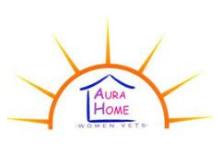Aura Home Women Vets help economically disadvantaged women Veterans become more self-reliant. Our vision is that Aura Home empowers women Veterans to be vibrant and self-sufficient to thrive in their community. Depending on where the woman is when coming to AHWV, we know her life has been improved when:
• She accesses the VA benefits rightfully due her.
• She’s comfortable to accesses VA medical care with AHWV Chaperone Services.
• She regains stabilization, ... Leggi tutto
Aura Home Women Vets help economically disadvantaged women Veterans become more self-reliant. Our vision is that Aura Home empowers women Veterans to be vibrant and self-sufficient to thrive in their community. Depending on where the woman is when coming to AHWV, we know her life has been improved when:
• She accesses the VA benefits rightfully due her.
• She’s comfortable to accesses VA medical care with AHWV Chaperone Services.
• She regains stabilization, self-sufficiency and becomes self-reliant.
We measure success one woman at a time, meeting her where she is at and providing assistance until the issue is resolved and/or the woman is stabilized and able to maintain independent housing.
Aura Home Women Vets (AHWV) serves any female United States Veteran facing or at risk of homelessness, regardless of branch or time served, or honorable or dishonorable discharge. Many women Veterans come to AHWV when they are facing homelessness or are having trouble accessing benefits and on the verge of homelessness. Our goal is first prevention and second stabilization through offering a safe haven for women to live as they regain self-sufficiency.
Aura Home Women Vets primarily serves female Veterans from Buncombe, Henderson & Haywood Counties, NC. Additional counties include Madison, McDowell, Mitchell, Polk, Rutherford, & Transylvania. Our current office is in Asheville; our transitional housing, the Felicia Reeves Home, is in Hendersonville, NC.
One of AHWV’s most significant strengths comes from the leadership and experience helping women Veterans that comes from the founder and Executive Director, Alyce Knaflich. Her experience includes:
• 19 ½ years served in US Army
• 10 years lived experience with homelessness
• 3 years case management with homeless agencies
• 5 years participation with NC Coalition to End Homelessness (NCCEH), committees Region 2, Project Review, Point-in-Time Count, Consumer Advisory Council, Veteran and Coordinated Entry
• 12 years volunteering Veterans Affairs in patient advocate office, AMVETS Representative, Committees: volunteer executive, strategic planning, parking lot and staff hiring for associate director, special events coordinator
• B.S. from Virginia Tech
• Continuing Education training for VA, homeless programs and non-profit policy
Ms. Knaflich’s devotion to women Veterans comes from the heart, as well as from lived experience, her knowledge of the VA, and her determined attitude and willingness to fight for justice for every Veteran who comes to AHWV.
Working independently with each woman Veteran, programs provided by Aura Home are designed to help women facing or in fear of homelessness become self-sufficient. Programs include:
• Temporary Financial Assistance- mortgage/rent, utilities, deposits
• Personal Case Management and Mentorship
• VA Benefit Navigation and Community Resource Access
• VA Chaperone- Medical, Claims and Appeals
• Transportation- car payment, car repair, car insurance, and bus pass
• Housing and Employment Search- through employment agencies and web searches
• Peace Education Program- Personal Discovery Program
• Temporary Housing- Felicia Reeves Home projected to open 2023
• Education on community resources, budgeting, self-sufficiency
In western North Carolina, the number of beds available to female versus male Veterans is extremely disproportionate with only 20 beds available to females and 244 beds available to male Veterans. According to state statistics, 14% - or approximately 12,120 of NC women Veterans are homeless or at risk of homelessness.
According to the U.S. Department of Veterans Affairs, female Veterans comprise the fastest-growing segment of the homeless Veteran population. From 2016 to 2017, the number of homeless female Vets increased by seven percent, compared with one percent for their male counterparts. Female homeless Veterans have unique needs from homeless male Veterans, and lived military life differs from civilian homeless women where they feel like outcasts among people without experience with military life.
Collaborating Organizations include:
• Homeward Bound- Supportive Services for Veterans and Families (SSVF)
• The Haven- Shelter in Transylvania County
• Thrive- Housing Services through NC Continuum of Care Region 2
• Charles George VAMC HUD-VASH- Housing Services
• Heart of Horse Sense- Equine therapy
• NC Serves Western/ NC Cares360- Veteran referral service
• United Way 211- Veteran referral service and community resources
• Pisgah Legal- eviction services and tenant/landlord rights education
Nascondi testo completo